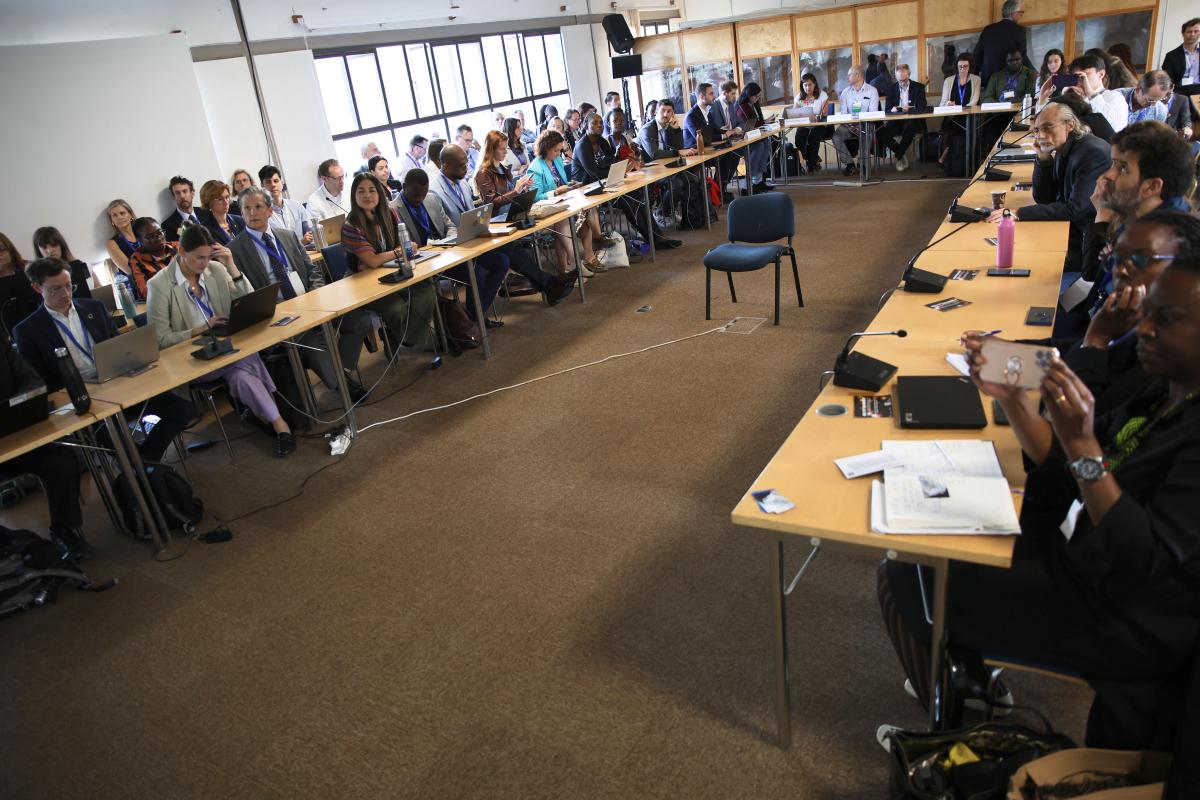On 16th November, Director of Sustainability at The Consumer Goods Forum (CGF), Cédric Dever, joined a panel discussion dedicated to a circular economy for plastics at the third session of the Intergovernmental Negotiating Committee (INC-3), which took place at the UN Environment Programme (UNEP) Headquarters in Nairobi, Kenya. The committee meetings aim to develop an international legally binding instrument on plastic pollution, including in the marine environment. The panel, moderated by UNIDO, brought together global experts working along the entire lifecycle of plastic-containing products, including the Ministry of the Environment, Water and Ecological Transition in Ecuador, Groundwork South Africa, the International Alliance of Waste Pickers and Women in Informal Employment, Kenyan National Waste Pickers Welfare Association, The Consumer Goods Forum and TerraCycle Global Foundation.
Cédric presented the work of the CGF’s Plastic Waste Coalition, highlighting its position on the Plastic Treaty, and endorsement of the vision of the Business Coalition for a Global Plastics Treaty. He then went on to present the Coalition’s three key areas of focus, on packaging design, Optimal extended producer responsibility, and reuse/refill.
The Plastic Waste Coalition has laid important groundwork which may help to inform the treaty’s approach to packaging design, he explained, with the creation of its Golden Design Rules, designed to help themselves and others in the industry use less and better plastic. “Companies don’t need to wait for the treaty to conclude to take meaningful action on eliminating plastic waste today,” he added. “Adopting principles like the Golden Design Rules ultimately help us move to a circular economy for plastics, where it is used again and again in many forms, instead of ever becoming waste or pollution.”
Cédric also spoke about the Coalition’s work on EPR, highlighting that establishing EPR policies to fund plastic packaging after-use collection and treatment is a crucial tool to tackle pollution. He then shared that the Coalition’s latest workstream focused on reuse/refill was launched to explore how we can collectively support scaling of reuse and refill models. Reuse/refill is an opportunity for a systemic shift from disposable packaging, he said, towards a model that reduces material use, greenhouse gas emissions and waste. Cédric ended with a strong recommendation that the final treaty must contain strong and legally-binding provisions that require national governments to implement and enforce regulations over the full life-cycle of plastics.
For more information about the CGF’s work to help drive progress towards a world where no plastic ends up in nature, learn about our Plastic Waste Coalition.

